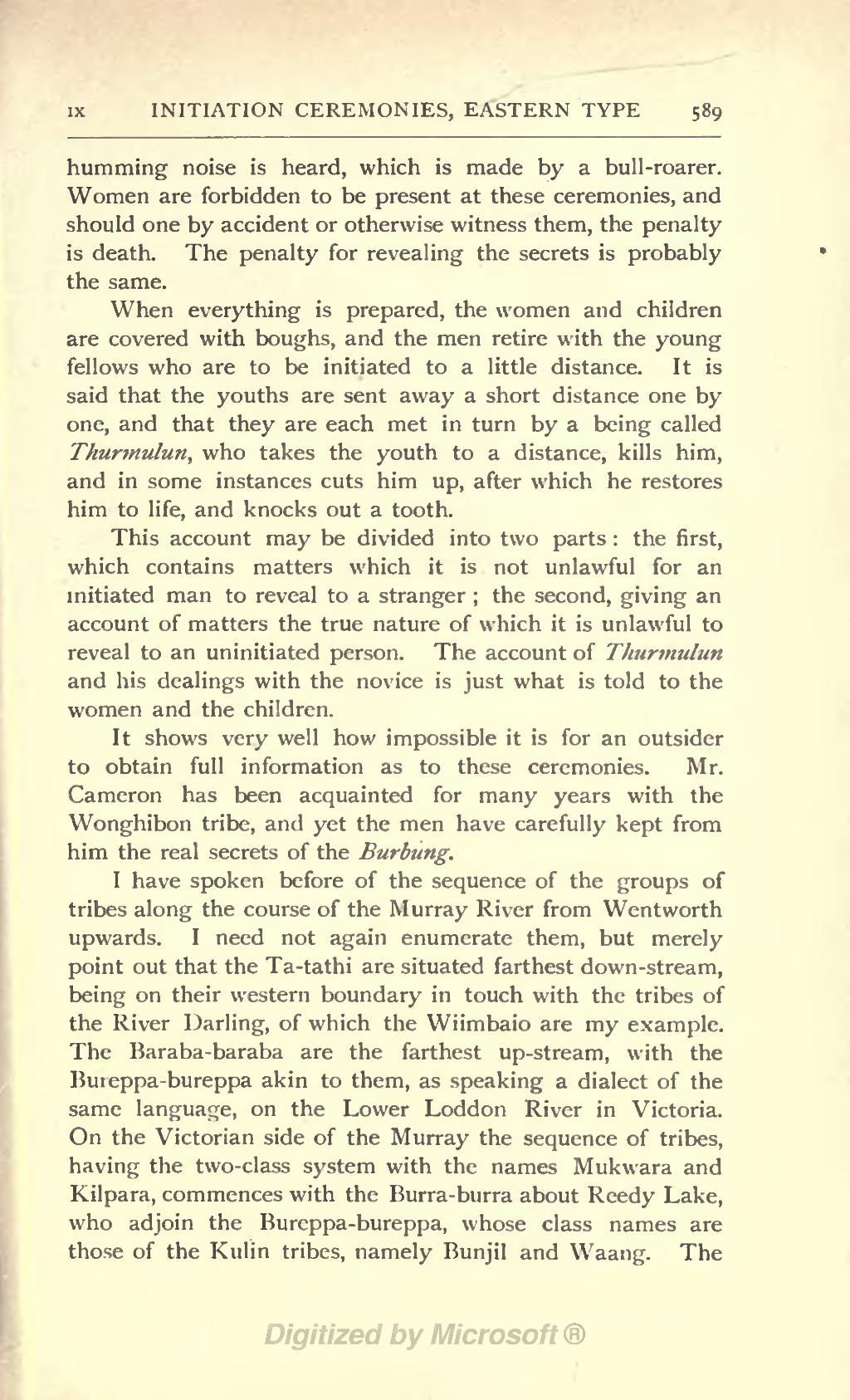humming noise is heard, which is made by a bull-roarer. Women are forbidden to be present at these ceremonies, and should one by accident or otherwise witness them, the penalty is death. The penalty for revealing the secrets is probably the same.
When everything is prepared, the women and children are covered with boughs, and the men retire with the young fellows who are to be initiated to a little distance. It is said that the youths are sent away a short distance one by one, and that they are each met in turn by a being called Thurmulun, who takes the youth to a distance, kills him, and in some instances cuts him up, after which he restores him to life, and knocks out a tooth.
This account may be divided into two parts: the first, which contains matters which it is not unlawful for an initiated man to reveal to a stranger; the second, giving an account of matters the true nature of which it is unlawful to reveal to an uninitiated person. The account of Thurmulun and his dealings with the novice is just what is told to the women and the children.
It shows very well how impossible it is for an outsider to obtain full information as to these ceremonies. Mr. Cameron has been acquainted for many years with the Wonghibon tribe, and yet the men have carefully kept from him the real secrets of the Burbung.
I have spoken before of the sequence of the groups of tribes along the course of the Murray River from Wentworth upwards. I need not again enumerate them, but merely point out that the Ta-tathi are situated farthest down-stream, being on their western boundary in touch with the tribes of the River Darling, of which the Wiimbaio are my example. The Baraba-baraba are the farthest up-stream, with the Bureppa-bureppa akin to them, as speaking a dialect of the same language, on the Lower Loddon River in Victoria. On the Victorian side of the Murray the sequence of tribes, having the two-class system with the names Mukwara and Kilpara, commences with the Burra-burra about Reedy Lake, who adjoin the Bureppa-bureppa, whose class names are those of the Kulin tribes, namely Bunjil and Waang. The
